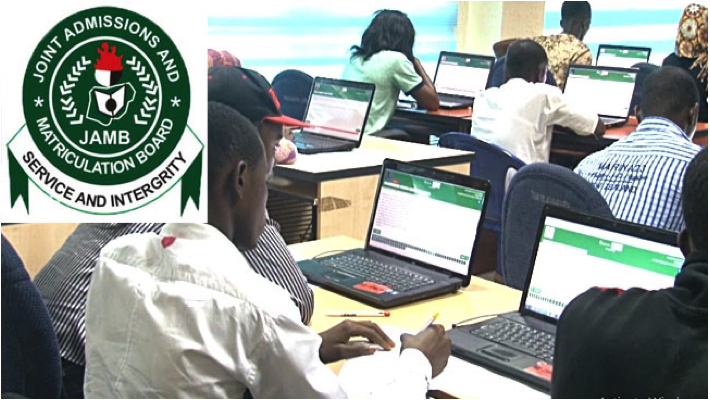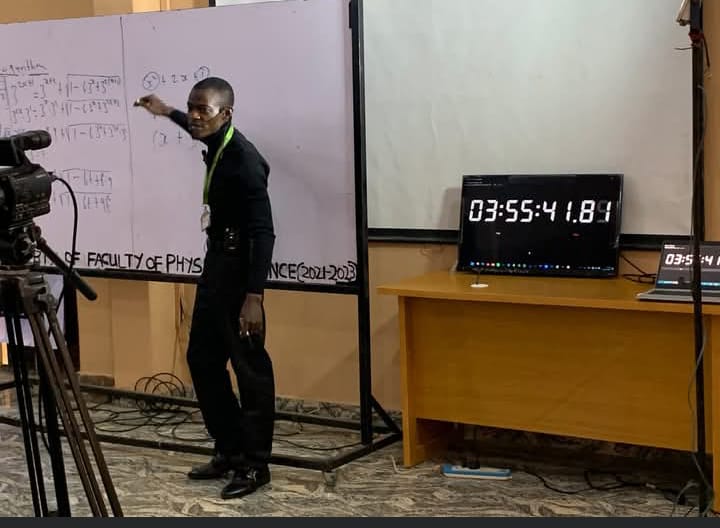Nigeria aims for top 80 in HCI — FG
By Salisu Sani-Idris
The Federal Government has reaffirmed its commitment to position Nigeria among the top 80 countries on the global Human Capital Index (HCI) by the year 2030.
Vice-President Kashim Shettima made this known in Uyo, Akwa Ibom State, during the inauguration of the state’s National Human Capital Development (HCD) Accelerator Project and the ARISE Human Capital Development Strategy.
The News Agency of Nigeria (NAN) reports that the Vice-President also inspected several ongoing ARISE HCD projects, including model primary schools and the ARISE Park, an innovative environmental reclamation initiative.
Shettima expressed confidence that the national ambition was achievable through the enhancement of workforce capabilities and improved socio-economic outcomes.
He commended the Akwa Ibom State Government for being the first to implement the national HCD blueprint across all local government areas.
“Every policy or programme that intervenes in the lives of our people can only succeed if it is rooted in the grassroots.
“The true wealth of any nation lies in the certainty of its human capital, the education of its children, the health of its citizens, and the productivity of its workforce,” he said.
He noted that the Federal Government had inaugurated the second phase of the Human Capital Development Programme (HCD 2.0), stating that it built on the first phase with a stronger focus on integration and measurable impact.
“At its core, HCD 2.0 is about integration and impact. It is built on the foundation of HCD 1.0 but goes further to incorporate cross-cutting themes.
“What Akwa Ibom State has shown us here isn’t just progress, it’s leadership,” he said.
Emphasising the importance of data-driven policy implementation, Shettima announced the introduction of an HCD Dashboard to track key indicators in real time.
“We are deploying data not for reports, but for results because behind every number is a story: a child not vaccinated, a mother lost to childbirth, a youth with promise but no pathway.
“These are not mere statistics. They are realities. And we must confront them with urgency and compassion,” he stated.
He lauded Akwa Ibom’s progress, highlighting metrics where the state outperformed national averages.
“With an under-five mortality rate of 80, compared to the national average of 110, your state is already showing remarkable progress,” he said.
“And with only 3.5 per cent of primary-age children out of school far below the national average of 25.6 per cent, you are not merely compliant with our national vision; you are ahead of the curve,” he added.
As part of the national strategy, Shettima also unveiled Project Fuuku, a clean cookstove initiative expanding on a successful pilot in Nasarawa State.
He said that the project addressed public health, environmental, and gender equity challenges.
“This intervention is more than a public health measure. It is a gender-sensitive, climate-conscious strategy that saves lives, preserves forests, and uplifts rural women burdened by indoor pollution and fuel scarcity.
“To ensure continuity and sustainability, the Vice-President announced plans to institutionalise a Human Capital Development Fund.
“We are working to institutionalise the HCD Fund to ensure that no matter who occupies these offices tomorrow, the investments we make in people today will endure.
“If we must meet our target of reaching an HCI score of 0.6 and becoming a top-80 nation globally by 2030, we must act with boldness.
“Implementation must be swift. Data must guide us. Financing must be innovative,” Shettima said.
Earlier in his remarks, Gov. Umo Eno of Akwa Ibom described human capital development as the foundation of sustainable development.
He assured that the state would continue to invest in the initiative and collaborate closely with the national HCD team.
He also revealed plans to send an Executive Bill to the Akwa Ibom State House of Assembly to domesticate the human capital development programme and ensure its implementation at the local government level.
“We are thrilled that our state was selected as the first for the inauguration of this programme.
“This reinforces the fact that the Federal Government under President Bola Tinubu does not play politics with development and this we deeply appreciate,” the governor added.
Ms Rukaiya El-Rufai, the National Coordinator for Human Capital Development in Nigeria and Special Adviser to the President on National Economic Council (NEC), said Nigeria currently ranked 168 out of 174 countries on the HCI.
She reiterated the importance of continuity and long-term planning.
“Human Capital Development improves the health and well-being of the people, ensuring they receive quality education, effective healthcare, and ultimately achieve their full potential,” she said.
Dr Nathaniel Adiakpan, Special Adviser to the Governor and Chairman of the Akwa Ibom State Human Capital Development Council, described the ARISE strategy as the state’s collective resolve to empower citizens through education, skills, and opportunity.
“Today, we gather to actualise a Renewed Hope in human capital through the ARISE HCD initiative that will undoubtedly reshape the landscape of human capital development in our state,” Adiakpan stated.
The News Agency of Nigeria (NAN) reports that the high point of the event was the distribution of clean cooking stoves to selected beneficiaries by the Vice-President.
Other dignitaries present included the Deputy Chief of Staff to the President (Office of the Vice-President), Sen. Ibrahim Hadeija, and the Special Adviser to the President on General Duties, Dr Aliyu Modibbo.
Also in attendance were the Coordinator of the Office of the Wife of the Akwa Ibom State Governor, Mrs Helen Obereki, and the Secretary to the Akwa Ibom State Government, Prince Uwah.
The event also had in attendance the Akwa Ibom State Focal Person and Chairman of the South-South Focal Persons’ Forum for HCD in Nigeria, Mr Uduak Isaac. (NAN)(www.nannews.ng)
Edited by Abiemwense Moru














